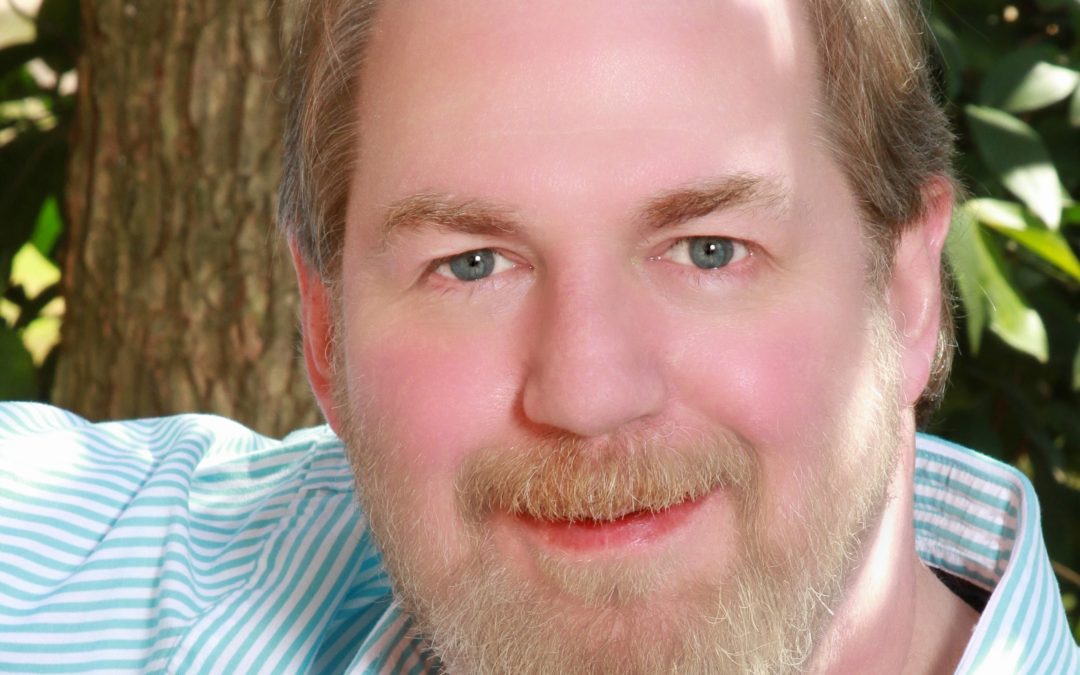It was in the summer of the first moon landing and Woodstock that I read Kurt Vonnegut’s God Bless You, Mr. Rosewater, which I say is about being beneficial presence in the world, though who knows what was intended. A young person decides to go to strange and wonderful lengths to help random people, giving them sudden power over their destinies, with the forces of Establishment greed in hot pursuit. This little book had a lot do with shaping my beliefs about service, and those led to my eventual career choice. With fiction and philosophy you have to work out the meaning. It comes in on a different wavelength than on-the-nose inspiration or motivation, on the same channel where the ancients drew meaning from watching the stars. Recently I had the chance to see the works in the personal libraries of some late colleagues, and how our literary tastes aligned or didn’t. I would never have known this, had the Science of Mind Archives shelved not just overt Science of Mind material but its wide periphery. And it would have been enough, but there was more.
The Archives is books, magazines, pamphlets, tracts, screeds, audio, and video. It’s an array of household goods from Ernest and Hazel Holmes’s Hancock Park manse, displayed beneath two shadowboxes of their topwear, arranged to show they’re holding hands through eternity. The Archives is fabulous meetings of minds alongside tedious minutes of meetings. Have you ever been on a committee? Then you know that what you were doing right then, in that meeting, on that subject, even if in the long run it came to little, was at the time the most important work ever. Open yourself to how you felt in the moment, and here it all comes flooding back.
If you view the Archives from behind the imagery the name conjures up, then it’s just bygone visions on browning paper, of scholarly interest but who else cares? Think instead of its contents as they were dealt with by real people in real time and it’s suddenly alive in your hands. This item was cared about or useful, which is why it was saved so you could look at it, and fall into it. Ernest’s money clip, humidor, selection of pens, pictures he chose to hang on his wall ─ these were not artifacts but a man’s life happening now. Reframe the antique into the everyday, and time collapses. Ernest suggested this is how we manage manifestation, by normalizing what at first seems alien, like our dreams of becoming more than we seem.
Marie Kondo says toss it if doesn’t bring you joy. But if it’s a book, toss it to me, would you? Tom and Nadene McLellan knew this. They’re a couple who in 1984 answered my letter about the Science of Mind Hymnal. You may have seen one of these, with red cloth binding and gold leaf lettering. The old Protestant hymns now had cheerful, positive lyrics perfectly synced by Tom. Sin and torment were re-bundled into erroneous thinking and false appearance, “Onward Christian Soldiers” into “Onward Souls Eternal.” After each song Tom had put quotations and at the back was a list of their authors, but not who specifically had said what. Had Google existed I would not have written to him requesting citations. But what I got back was his working draft, and as a bonus, every Science of Mind magazine from 1947 forward. The McLellans were empty-nesters downsizing, loading out as much as they could stand to part with, but not those magazines until they found someone to treasure them as much as they had. Few gifts before or since have meant more.
In that draft are Tom McLellan’s penciled notes. We never met, but I feel his glee for the project, on the day when it was fresh and new and nobody had set out to do this work before. I never met Ernest Holmes either, but under glass in the Archives is the original 1926 edition of The Science of Mind with his penciled notes, in his unmistakable hand, as he scrawled revisions. On my visit I was allowed to put on white gloves and turn a few pages. I could feel Ernest marking away, moving this passage from here to here, refining his masterpiece. Maybe this was on a Tuesday, in spring, with the patter of a rare Los Angeles rain on the sidewalk outside his office window, in the stucco building at Wilshire and Carondelet, before the move over to Sixth Street, wondering how his mother Anna was feeling, whether his new bride Hazel was back yet from the Ebell Club, and who would be joining them for dinner at the home they called The Hill.
This is why we have a Science of Mind Archives. Nothing is gone, nor ever can be.
–Jesse Jennings

